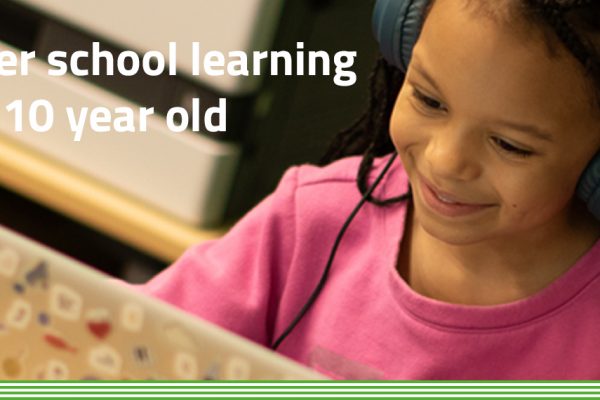
Are Video Games Good for Learning?
It’s a question many of our parents ask.
We believe learning through video games can be an important strategy to promote engagement and enhance their tech & coding skills development.
Video games support the building blocks of effective learning
An article on the Cambridge University Press website explains how video games support each of the building blocks of effective learning by providing:
- a strong and engaging narrative (context)
- purposeful interactions (authenticity)
- emotional engagement (motivation)
- freedom to fail (mistakes)
- opportunities for independent decision making (learner autonomy)
Video games with real-time strategy makes you smarter
Another study from University College London and Queen Mary University of London reported certain games can increase the player’s cognitive flexibility. The scientists describe this ability to be one of the cornerstones of human intelligence. It can be improved through engaging learning tools, one of which could be real-time strategy games.
The study was based on the results of psychological tests taken by participants after playing either Starcraft or The Sims for 40 hours over two months’ time.
Researchers discovered participants who played Starcraft made noticeable gains in their performance on tests. They completed various tasks with increased speed and more accuracy as well.
You can learn valuable problem-solving skills
Video games can teach kids real-world problem-solving skills as well as how to strategise. For instance, the popular Minecraft game allows you to use objects in your environment to overcome problems.
As an open-ended world-building game, Minecraft gives players an opportunity to sharpen their problem-solving skills on a larger and more impactful scale.
How?
As an example, during the gameplay, players often need to make decisions that require them to weigh the pros and cons of different options. For example, they might need to decide whether to explore a dark cave or stay in a safe area. By practicing critical thinking in the game, players develop their ability to make good decisions in real life.
By using their problem-solving skills to navigate the game’s challenges, such as building structures, finding resources, and surviving hostile environments, players are encouraged to think critically and creatively. They must use their imagination to come up with new ideas and solutions.
Developing and mastering the strategies in the game can then be applied to the real world around you. Some of them may even become second nature, and kids could start implementing them without even realising it.
Video games can help teach languages
In another study by Helsinki University in Finland, it was concluded that kids playing video games can improve language skills. The study was based on Finnish children and found that they learned foreign languages through the game’s on-screen instructions, and whilst taking part in live chats with other players.
Video games with lots of action can boost learning
The University of Rochester published an article in 2014 about a study that showed how playing action video games improves not just the skills that kids needs to play the game, but also their learning capabilities more generally.
Daphne Bavelier, a research professor in brain and cognitive sciences at the University of Rochester said this about the research:
“Prior research by our group and others has shown that action gamers excel at many tasks. In this new study, we show they excel because they are better learners, and they become better learners by playing the fast-paced action games.”
Video games can “increase the size of your brain”
The Max Planck Institute for Human Development in Germany published the results of a study which showed how playing computer games has the ability to improve the quality of life for mentally ill and disabled participants.
The research revealed that playing different video games increases grey matter, or the size of your brain. Playing computer games was also shown to streamline both learned and instinctive skills. Simply put, gaming impacts the parts of the brain responsible for spatial orientation, fine motor skills, and memory.
The study involved monitoring two groups of adults. One of the groups was asked to play Super Mario 64 for half an hour a day over the course of sixty days. The other group didn’t play video games at all during this period.
To measure the impact on possible learning and brain changes, MRIs were taken of the participants at the start of the study to measure their brain sizes. They were measured again at the end of the two months.
The study’s results found that those who play video games have differences in their brain structure from those who do not. A direct link was made between gaming and an increase in brain size.
This led the researchers to conclude those people afflicted with mental disabilities who’ve had areas of their brains shrink such as Alzheimer’s could benefit from playing video games.
Turn your child’s passion for gaming into proactive learning
At FunTech, we capitalise on children’s passion for gaming to teach them real coding and tech skills – take a look our holiday camp courses and term time courses.
Keep me Informed
Be the first to know about Flash and Early Bird Sales as well as new courses, summer locations, term time courses and more.
KEEP ME INFORMED


